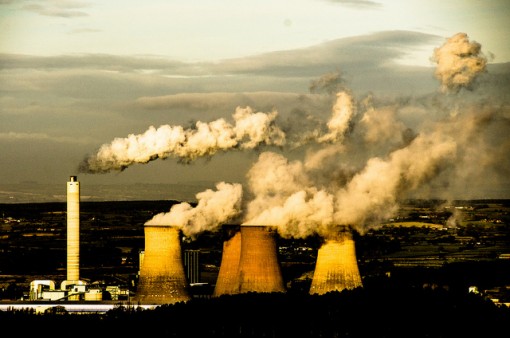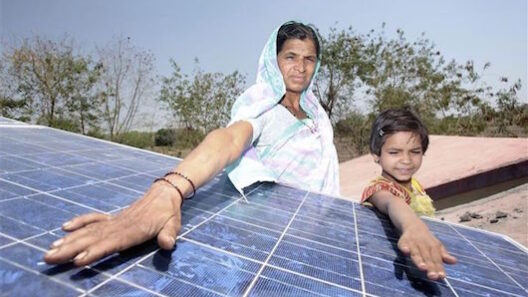Energy conservation and air pollution are intrinsically linked in our quest for a sustainable future. As we grapple with the harsh realities of climate change and the detrimental impact of pollution on public health, one cannot underestimate the importance of reducing energy consumption. The utilization of energy resources not only powers our lives but also contributes significantly to air pollution levels; hence, curtailing energy utilization positively affects air quality. This analysis delves into practical approaches to conserve energy resources, highlighting their implications for mitigating air pollution.
To begin with, it is essential to understand what energy conservation entails. Energy conservation can be defined as the practice of reducing energy consumption through using less of an energy service. This can be achieved by employing various strategies—from enhancing the efficiency of appliances to adopting renewable energy sources. One notable method for conserving energy is implementing energy-efficient appliances in homes and businesses. Traditional devices often draw excessive power, leading to heightened energy consumption and, consequently, increased emissions from power plants. Conversely, investing in energy-efficient appliances not only diminishes energy consumption but also results in lower utility bills.
Beyond individual appliances, energy conservation can be realized through the optimization of heating, ventilation, and air conditioning (HVAC) systems. These systems are notorious for excessive energy use. To mitigate this, homeowners and businesses can invest in programmable thermostats, which can be set to adjust heating and cooling patterns based on occupancy. This simple yet effective measure helps reduce energy consumption, thus lowering the burden on energy-guzzling sources that perpetuate air pollution.
Another salient area of concern is transportation, which contributes enormously to air pollution due to emissions from fossil fuel-powered vehicles. Encouraging the use of public transportation, carpooling, biking, or walking can significantly reduce energy consumption and emissions. For longer commutes, electric vehicles (EVs) present a cleaner alternative. The burgeoning EV market is a testament to society’s shift towards sustainable transportation solutions, aimed at diminishing reliance on fossil fuels. However, it is crucial to consider the energy sources used to charge these vehicles—renewable energy sources such as wind or solar power should ideally be employed to maximize their environmental benefits.
In conjunction with transportation, urban planning plays a critical role in establishing a low-energy, pollution-free environment. Cities designed with walkable neighborhoods, ample green spaces, and efficient public transport systems invariably reduce energy use and promote a cleaner-air environment. Integrating green infrastructure—such as parks, green roofs, and urban forests—can ameliorate air quality through the natural filtration of pollutants, showcasing yet another link between energy conservation and air pollution reduction.
The electrification of industries is another opportunity ripe for exploration. Many industries rely heavily on fossil fuels for operations, generating substantial air pollutants. Transitioning to electric-powered machinery and processes—especially when powered by renewable energy—can drastically lessen emissions. Industrial symbiosis, wherein industry waste is repurposed for use in another process, also promotes energy conservation and reduces overall pollution levels. By fostering collaborative networks, we can facilitate more sustainable industrial practices.
Home insulation stands as another key factor in reducing energy reliance and preserving air quality. Poorly insulated buildings can lead to heat loss during winter and excessive cooling requirements in summer, which often necessitate the use of energy-intensive HVAC systems. Investing in adequate insulation solutions—like energy-efficient windows, proper sealing, and high-quality insulation material—can dramatically lessen energy consumption while also providing a more comfortable living environment.
Moreover, raising awareness about energy conservation plays an indispensable role in inspiring collective action. Education is paramount in enabling individuals to comprehend the broader impacts of their energy use behaviors. Community workshops, school programs, and social media campaigns can disseminate knowledge and practical tips on conserving energy. When communities collectively engage in sustainable practices, the cumulative effect can lead to significant reductions in air pollution.
In addition to these methods, government policies and incentives are crucial in fostering a culture of energy conservation. Governments can promote renewable energy initiatives through tax incentives, subsidies, and grants that ease the financial burden of transitioning to renewable energy sources. Implementing stricter emission standards for industries and vehicles can also catalyze a shift towards cleaner energy practices while incentivizing companies to innovate in energy efficiency.
Beyond policy, corporate responsibility is vital. Companies can adopt sustainability initiatives that focus on reducing energy use in their operations. Through establishing comprehensive sustainability policies, businesses can commit to minimizing their carbon footprint while also educating employees about responsible energy use. As consumers become increasingly conscious of corporate practices, businesses that prioritize sustainability will likely thrive, fostering a competitive landscape that champions environmental stewardship.
In conclusion, the path toward conserving energy resources and minimizing air pollution is comprehensive and multifaceted. By employing energy-efficient technologies, revamping transportation systems, prioritizing thoughtful urban planning, enhancing industrial practices, insulating homes, and driving forward community awareness and governmental policies, we can take significant strides toward a clearer and healthier environment. The confluence of these efforts not only leads to decreased energy consumption but also propels society toward a sustainable future, imbuing hope for subsequent generations to inhabit a world with cleaner air. Thus, every measure taken toward energy conservation is not merely an act of individual responsibility but a collective endeavor towards a cleaner, greener planet.







